Craig’s Top Ten of 2018
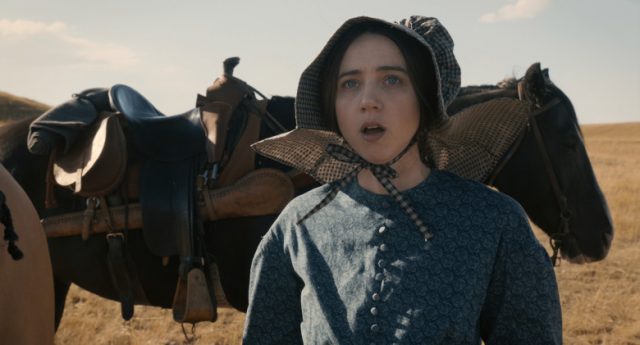
10. The Ballad of Buster Scruggs
The Ballad of Buster Scruggs—the Coen Brothers’ long-gestating western anthology—is a film that bounces between comedy and tragedy with demented euphoria. The film opens with a farcical tale of a singing cowboy, a la Gene Autry, that descends into chaos and bloodshed. The prevailing theme of its various stories of misanthropy and misery is that life is nihilistic, plain and simple; it’s as easy to die singing a song with a smile on your face (“The Ballad of Buster Scruggs”) as it is difficult to kill a common thief (“Near Algodones”). The Ballad of Buster Scruggs is another entry into the Coen’s long filmography of the humorously bleak and the bleakly humorous, making both comedy and tragedy inevitable and indistinguishable.

9. Sorry to Bother You
Maybe it’s director Boots Riley’s background in music that makes his debut film Sorry to Bother You (the first of four directorial debuts on this list) feel more like a punk song than a movie. It’s fast paced and transgressive, assaulting and wild; it makes you feel like chucking a brick through a Starbucks window while screaming KICK OUT THE JAMS! Lakeith Stanfield—who is already one of comedy’s unsung heroes as pothead-weirdo Darius on TV’s Atlanta—is Cassius Green, a disaffected everyman who stumbles his way through the Faustian odyssey of American capitalism. Sorry To Bother You is Jonathan Swift by way of Jello Biafra, a skewering satire of capitalism injected with an anarchic style that is dangerously exciting.
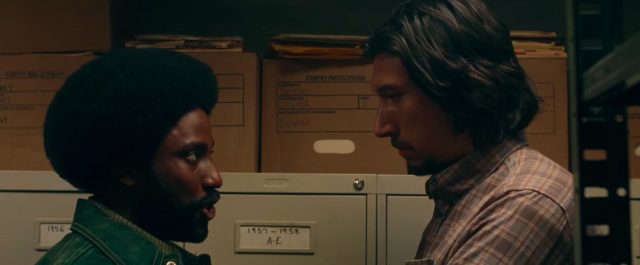
8. BlacKkKlansman
Spike Lee has been America’s most vital filmmaker for three decades now, attacking the country’s inequities with passion, power, and energy. And because of the punch a Spike Lee joint can pack, it’s easy to forget just how clever he is and how flawlessly he injects humor into cogent stories. And BlacKkKlansman is a Spike Lee signature through and through (complete with his trademark floating dolly shot, his best use of the technique since Malcolm X). The true story of a black police officer who infiltrates the Ku Klux Klan to foil a domestic terrorism plot, BlacKkKlansman mines an incredible amount of comedy from the source material (the film’s stars John David Washington and Adam Driver perfect a deadpan tone, which heightens both the film’s comedic and dramatic elements). But BlacKkKlansman’s most stunning accomplishment is its ability to make a nearly fifty year old story so painfully vital. Films like BlacKkKlansman chip away at the polite euphemisms that history affords its ugliest moments. Spike Lee’s films are Americana. And that’s the double truth, Ruth!
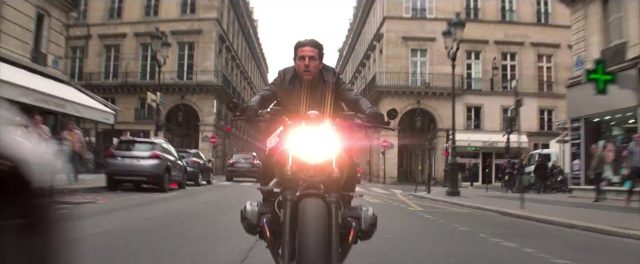
7. Mission: Impossible – Fallout
The Mission: Impossible series has had a curious existence. Hitting a nadir with only its second entry, Mission Impossible has climbed from its own wreckage to emerged as one of the most influential action franchises of the 21st century, peaking with this year’s Mission: Impossible – Fallout. Director Christopher McQuarrie—who also directed the franchise’s fifth installment—has a preternatural ability at crafting, staging, and executing large action set-pieces (much has been made of the film’s climactic helicopter scene, but McQuarrie’s work on the film’s motorcycle chase is perhaps the best of his career). I’m as surprised as anyone that the sixth installment of a twenty year-old action franchise has creeped its way into my top ten, but here it sits. Mission: Impossible is dead; long live Mission: Impossible.
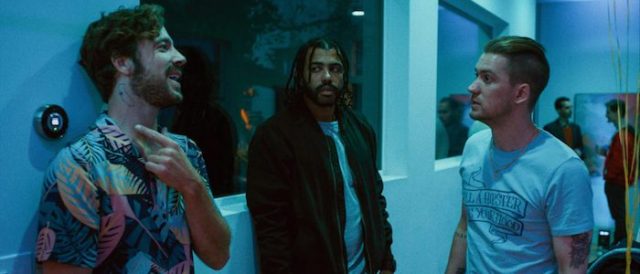
6. Blindspotting
Blindspotting is a blunt film about race in America that asks its audience to distinguish when it’s appropriate to empathize versus sympathize. Collin (Hamilton’s Daveed Diggs) and Miles (Rafael Casal) are two men living similar lives in Oakland, California, but with one major difference: Collin is black and Miles is not. And though the two men come from nearly identical backgrounds, Miles finds himself trying to empathize with the black American experience while Collin just wants him to quit trying to relate to his experience as a black man and sympathize with him instead. Whereas bigger named films from 2018 present contentious race relations as quaint misunderstandings, Blindspotting is much more complex, looking past superficial arguments and considering the uncomfortable nuances that may actually elevate discussions on race. And while movies are “empathy machines” (as Roger Ebert once quipped), Blindspotting makes it clear that white America needs to learn to sympathize with the black American experience rather than convincing themselves they can empathize.
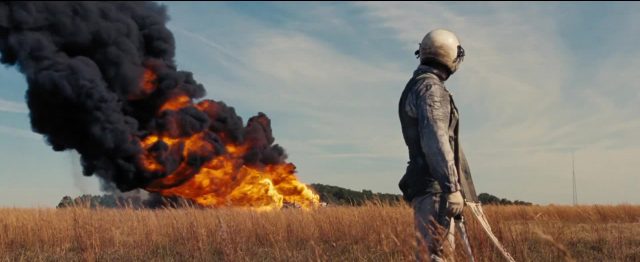
5. First Man
There’s a pivotal moment in Damien Chazelle’s First Man where Neil Armstrong walks across the surface of the moon in awestruck silence, his face obscured by the reflective glare of his helmet. In that moment, Chazelle’s film comes to a deafening crescendo as Armstrong’s ambition and grief coalesce into a singular moment and the film presents him as a literal and figurative alien in his own body. There are a lot of things to like about First Man: Justin Hurwitz’s score (re-teaming with Chazelle after their stunning collaboration in La La Land), the film’s sound design is immersive, and the acting is impeccable. But First Man’s most stunning success is its harrowing and candid portrayal of grief and the difficulty of finding purpose after tragedy.

4. Roma
The garage in Alfonso Cuaron’s Roma plays an inconspicuously vital role in the film; there are multiple shots from the back of the garage looking out into the uncertain world just beyond the doors. It’s a grey area between two worlds, one of means and another of hardships, and what happens between those garage walls—the family dog almost escapes numerous times and the narrow walls take a chunk out of the family car—is often unpredictable and a little dangerous. That’s the space in which Cleo (Yalitza Aparicio, in her film debut) exists, the middle ground between two worlds. Cleo, a poor young woman in Mexico City in the 1970s, tries to find balance between her work as a nanny for an upper middle-class family and her own personal strife. With its enchanting, monochromatic cinematography, Roma is a lyrical black and white ode to Cuaron’s own childhood nanny, combining cinematic whimsy with emotional pragmatism.

3. Eighth Grade
Bo Burnham, the YouTube star turned comedian turned director, has always been funny. But his comedy can have a bit of a mean streak, he’s biting and acerbic in a way that makes it seem like he is the last person who could make a film as sensitive and solicitous as Eighth Grade. But Burnham’s comedy (and personal experience) translates incredibly well to the film’s delicate approach to the trappings of teenage life lived for all to see on the internet. While every generation has made it tradition to shit on the generation that comes after them, Burnham does not. Eighth Grade, about an awkward middle school girl looking for validation on the internet (the least validating place on Earth) is sweet and tender, without ever being condescending or judgmental. Burnham asks everyone to meet Generation Z where they exist, on their own terms.
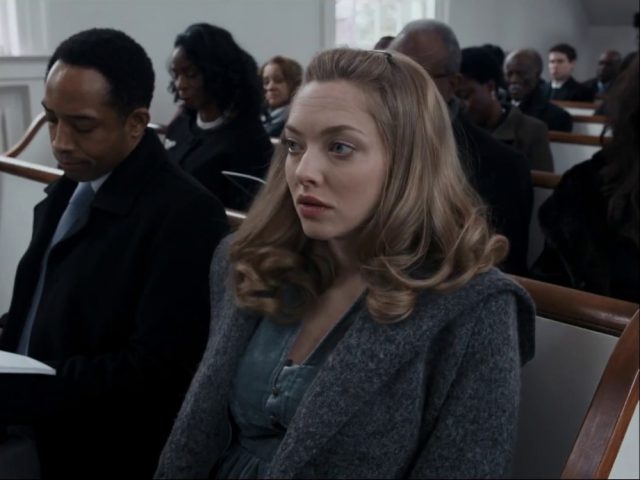
2. First Reformed
There’s no easy answer to the question “What is First Reformed about?” Paul Schrader’s inflammatory and intimate story of quiet crisis is the year’s most difficult but rewarding film. Toller (Ethan Hawke) is an alcoholic, grieving priest of a mostly irrelevant church when his perspective on life is torn to ribbons when confronted with a single question: what will God think when he sees what we’ve done to this world? It’s an existential conflict, one that seems better explored in a philosophical Russian tome than in a one hour and fifty-three minute film. But Schrader’s provocative screenplay acutely actualizes this abstract conflict with precision and grace. First Reformed is a movie that doesn’t work without Hawke’s devastating lead performance. Hawke—who never seems content with the mundane, as his acting choices get more and more challenging with each passing year—is a man whose very existence is at conflict with the universe. He’s (quite literally) a shepherd without a flock, drifting ever closer to a revelation that won’t leave him unscathed. And Hawke is brilliant, displaying contradictory feelings of world weariness and naive hope. First Reformed is a showcase for two Hollywood heavyweights delivering career bests.
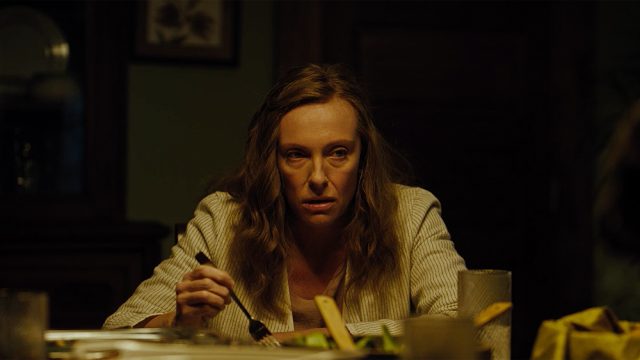
1. Hereditary
I grew up in a Southern Baptist church in the Florida panhandle. All movies about satanism, witchcraft, occultism, and phantoms were strictly verboten (I was once castigated by a church mom and told “I let the Devil in” after I led a brigade of like-minded teenage necromancers in a clandestine operation to sneak into a showing of Reny Harlin’s Exorcist: The Beginning). So naturally, horror movies were my favorite genre and my entree into film fandom, and years later, as a non-church attending heathen, I know the best horror movies are the ones that feel dangerous, and make me feel like I’m letting the Devil in all over again. Hereditary is one of those movies, primal and evocative; it’s volatile in a way that both plays on and betrays every genre convention.
Ari Aster’s debut feature film is the horror genre’s best screenplay since Get Out, with a patient, atmospheric first act that transitions into an explosive mid-act twist and a finale as a scary as anything else this decade. But Hereditary is more than the sum of its scares, offering a reverie on grief, anxiety, and depression amidst the horror. And there’s no discussion about Hereditary that doesn’t include Toni Collette’s staggering performance as Annie, the matriarch of a family finding their new identity after the death of one of their own. As Annie, Collette exists in a paradoxical state where she is both nurturing and volatile, vulnerable yet buoyant.
Hereditary is horror at its best. And maybe that church mom was right, maybe Hereditary did let the Devil in. Be that as it may. Hail, Paimon!




























This is an awesome list , great job sir
What movies would you say have been influenced by the Mission Impossible sequels?
The church mom was right in that Harlin’s Exorcist is a terrible movie nobody should ever watch. You should have waited for the studio to permit the release of Schrader’s Dominion: Prequel to the Exorcist, the less hacky version of the same movie. It’s still not that great, but at least it’s not so purely disposable.